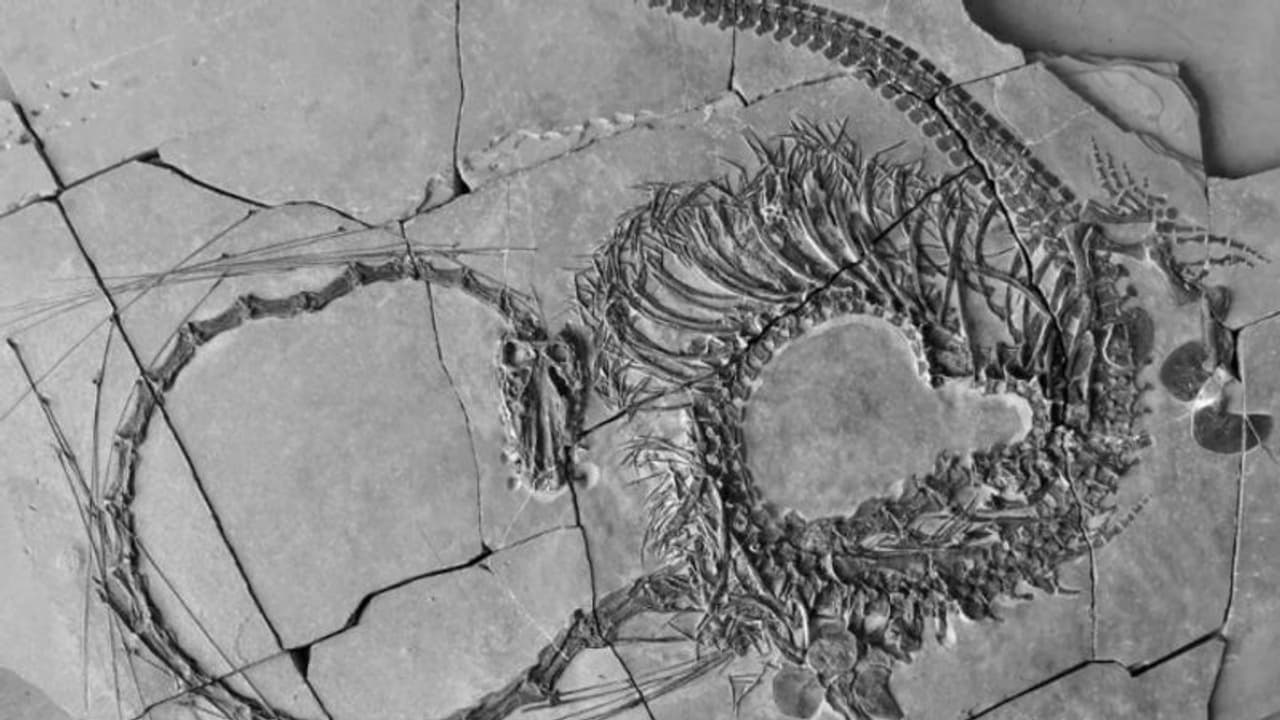Scotland unveils a 240-million-year-old 'Chinese dragon' fossil, Dinocephalosaurus orientalis, with an exceptionally long neck, discovered by an international team in southern China.
A remarkable discovery has emerged from Scotland's scientific community: a 240-million-year-old fossil, resembling a "Chinese dragon," has been unveiled. Measuring 16 feet in length, the fossil belongs to an aquatic reptile from the Triassic period known as Dinocephalosaurus orientalis. The creature earned its moniker due to its exceptionally elongated neck.

Unveiled at the National Museums Scotland, the fossil was unearthed in Guizhou Province, southern China, by an international team. Dr. Nick Fraser, a member of the research team, described the fossilized creature as "a very strange animal" during an interview with the BBC.
"It had flipper-like limbs and its neck is longer than its body and tail combined," he added.
The elongated neck of Dinocephalosaurus orientalis likely facilitated its search for food in underwater crevices, according to scientists.
Dr. Fraser remarked, "This discovery just adds to the weirdness of the Triassic. And every time we look in these deposits, we find something new."
Experts noted the resemblance of the creature to Tanystropheus hydroides, a marine reptile from the Middle Triassic period.
"Both reptiles were of similar size and have several features of the skull in common, including a fish-trap type of dentition. However, Dinocephalosaurus is unique in possessing many more vertebrae both in the neck and in the torso, giving the animal a much more snake-like appearance," ABC News quoted the research team as saying.
The international team further concluded that the reptile exhibited clear adaptations for an oceanic lifestyle, evident from its flippered limbs and the presence of "exquisitely preserved" fishes in its stomach region.
Comprising experts from Scotland, Germany, the United States, and China, the team conducted a decade-long study of the fossil at the Institute of Vertebrate Palaeontology and Palaeoanthropology in Beijing before making their announcement public on Friday.
The findings of the study have been published in the journal "Earth and Environmental Science: Transactions of the Royal Society of Edinburgh."
